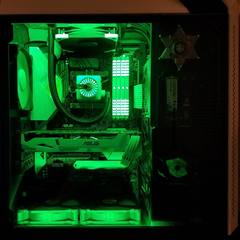Questions about Switches, 2.5Gb Bandwidth, and My New NAS
-
Topics
-
1
-
1
-
2
-
stocktonhyer99 ·
Posted in Windows0 -
So Corse ·
Posted in Graphics Cards8 -
SpaceyFoxey ·
Posted in Build Logs5 -
Max muster ·
Posted in New Builds and Planning5 -
Arixl ·
Posted in New Builds and Planning5 -
Millios ·
Posted in New Builds and Planning20 -
torrtoise ·
Posted in Troubleshooting4
-



















Create an account or sign in to comment
You need to be a member in order to leave a comment
Create an account
Sign up for a new account in our community. It's easy!
Register a new accountSign in
Already have an account? Sign in here.
Sign In Now